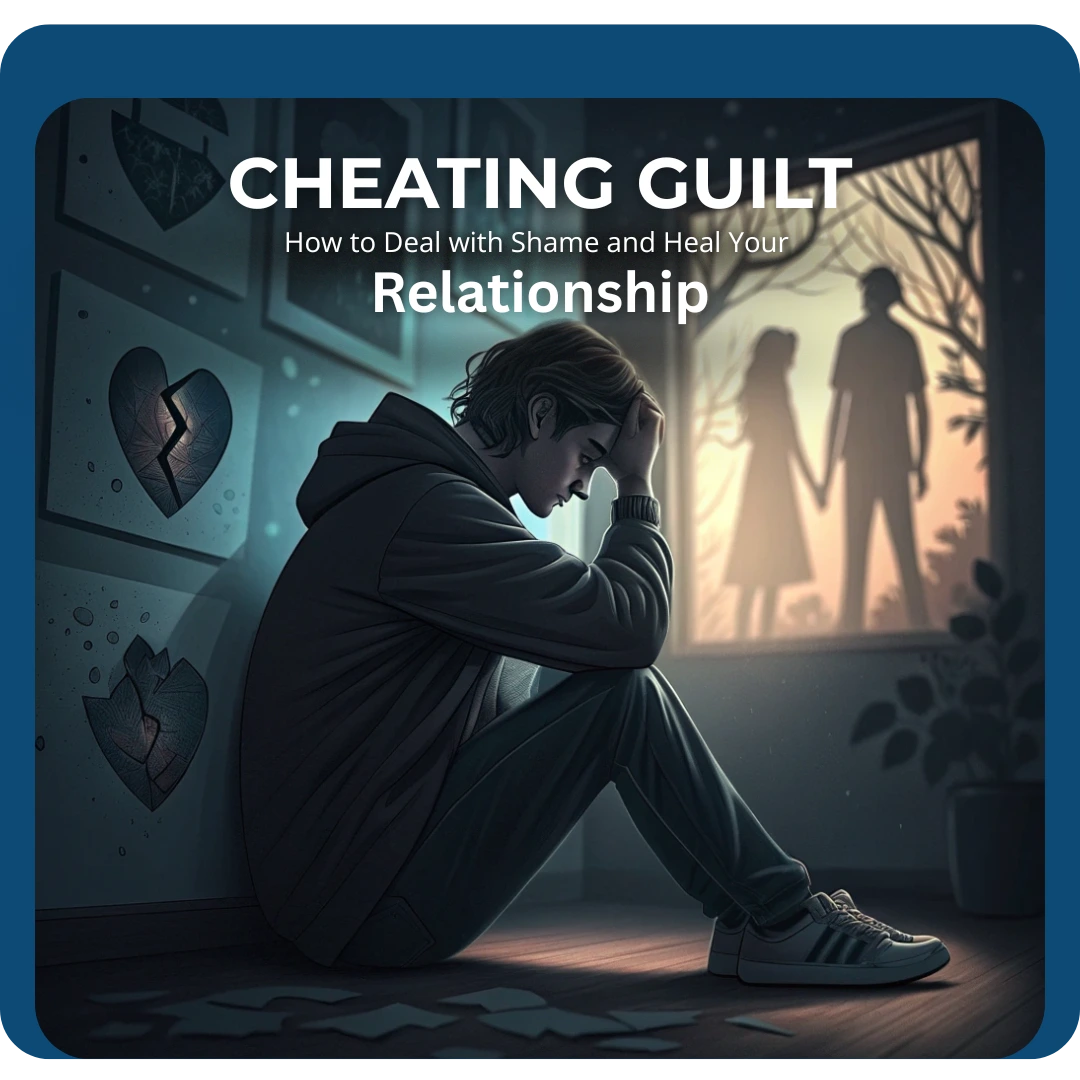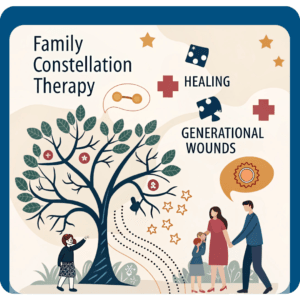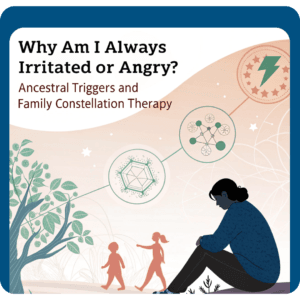Cheating Guilt: How to Deal with the Shame and Heal Your
Infidelity is one of the most difficult emotional experiences to navigate — for both the betrayed and the betrayer. But while we often talk about the pain of the one who’s been cheated on, there’s another side of the story that goes untold: the guilt and shame of the person who cheated.
If you’ve cheated on your partner and are overwhelmed with guilt, know this:
You are not alone. You are not a monster. You are not beyond healing.
You are a human being who made a difficult — perhaps destructive — choice. And now, your emotions are a reflection of your awareness and accountability.
This blog is for you — not to justify or excuse the action, but to help you process the guilt, understand the underlying emotional wounds, and decide what healing looks like from here.
Step 1: Acknowledge the Guilt — Without Drowning in It
Guilt is an emotional signal.
It tells you that you’ve acted out of alignment with your values or caused harm to someone you care about.
But guilt becomes toxic when:
- It turns into shame: “I am a bad person.”
- It becomes obsessive: looping thoughts, panic, self-hate
- It paralyzes you from taking responsibility or action
So what can you do instead?
✨ Affirm to yourself:
“I made a mistake. I hurt someone I care about. I’m willing to understand why I did this, take accountability, and begin the process of repair — with or without them.”
Step 2: Ask the Hard Questions — Without Judging Yourself
Most people don’t cheat just because they can.
It’s rarely about lust or thrill alone. It’s often a symptom, not the disease.
Ask yourself:
- Was I emotionally disconnected or feeling neglected?
- Was I trying to sabotage the relationship unconsciously?
- Was I craving validation or escape?
- Was I acting from past trauma, unmet childhood needs, or fear of intimacy?
Cheating is often a form of acting out pain that hasn’t been addressed.
You don’t need to shame yourself for these answers. You need to be brutally honest and deeply compassionate at the same time.
This is where inner child healing or working with a therapist can help.
Cheating often triggers abandonment wounds, fear of vulnerability, or defensiveness from childhood neglect or abuse.
Step 3: Decide Whether to Confess
There is no one-size-fits-all answer to “Should I tell my partner I cheated?”
The decision depends on:
- Whether the relationship is still alive and meaningful to both of you
- Whether honesty will help the relationship grow, or simply unload your guilt
- Whether you’re committed to repairing the trust and facing the consequences
Ask yourself:
“Am I confessing to relieve my guilt or to restore trust and intimacy?”
Sometimes silence is betrayal.
Sometimes silence is protection.
This is not a moral decision — it’s a conscious one. You may need support from a coach, therapist, or neutral third party to decide.
Step 4: Forgive Yourself — Not to Forget, But to Evolve
Forgiveness doesn’t mean forgetting or bypassing.
It means releasing the cycle of self-punishment that keeps you stuck.
Remember:
- You are allowed to make mistakes.
- You are allowed to grow.
- You are allowed to be both the one who caused pain and the one who seeks to heal.
If you stay trapped in guilt forever, you’re not helping your partner or yourself.
Use this as a portal to growth — emotionally, spiritually, and relationally.
“From guilt, I choose awareness. From awareness, I choose responsibility. From responsibility, I choose change.”
Step 5: If You’re Still Together — Begin the Repair Gently
If you’ve told your partner or they’ve found out, and both of you are choosing to stay, understand that rebuilding takes time.
What your partner might feel:
- Rage, sadness, betrayal, confusion, numbness, or all of the above.
- You must hold space for them — without defending or explaining too soon.
What you can do:
- Accept their emotional process without trying to control the outcome.
- Be available, transparent, and consistent.
- Go for couples therapy or family constellation sessions to see the generational or emotional roots of the betrayal.
- Ask, not just “How can I win back trust?” but “Who do I want to become from here?”
Step 6: If You’ve Broken Up — Don’t Carry the Shame Forever
Sometimes, cheating ends the relationship. If that’s where you are, it’s okay to grieve both the person and your actions.
You might face:
- Self-hatred
- Social judgment
- Regret for a version of yourself you don’t want to be
But punishing yourself forever won’t undo the past.
Healing won’t come from hating yourself. It’ll come from:
- Making amends where possible
- Learning to choose honesty over fear next time
- Understanding your own triggers and patterns
- Transforming guilt into growth
This is how you become someone worthy of deep love and trust again — starting with yourself.
Emotional Healing Tools You Can Use
To process guilt and emotional overwhelm, here are some practical tools:
🔹 EFT Tapping (Emotional Freedom Technique)
Tapping helps you calm your nervous system while addressing painful thoughts like:
“I’m a horrible person.”
“I’ve ruined everything.”
“I can’t live with this guilt.”
Regular tapping can release shame and increase clarity.
🔹 Inner Child Healing
Explore:
- When was the first time I felt unloved or unworthy?
- What does my inner child need right now?
- What beliefs did I inherit about love, loyalty, and worth?
🔹 Shadow Work
Ask:
- What parts of me did I repress that led me to act out?
- What am I afraid to look at?
What would it mean to love my whole self — even the parts I’ve judged?
Final Thoughts: This Is Not the End of Your Story
Cheating may be one chapter in your life — it doesn’t define the whole book.
You are not here to be perfect. You are here to be conscious.
To wake up. To make new choices. To love better. To heal deeper.
And you don’t have to do it alone.
Need Support to Process the Guilt and Heal?
At The Healing Room, we work with people who’ve been both hurt and have caused hurt.
No judgment. Just gentle guidance, emotional tools, and a safe space to feel, heal, and move forward.
🔮 Book a 1:1 Emotional Clarity Session to explore:
- Why did I cheat?
- What am I truly seeking in love?
- Can I forgive myself and start fresh?
👉🏼 Click here to book a personal session with Sonali Mittra
Guilt is feeling bad about what you did; shame is feeling bad about who you are. Guilt can lead to action, shame often keeps you stuck.
Yes, trust can be rebuilt over time with honesty, consistent behavior, and patience from both partners.
Usually, yes—honesty is important. It may hurt initially, but hiding things often causes more damage in the long run.
Accept responsibility, apologize, learn from the mistakes, and practice self-compassion. It's a process, takes time.
Talk to someone you trust, consider counseling, journal your feelings, and challenge negative thoughts with facts.
Your partner’s support, forgiveness, and willingness to rebuild connection are very important. But healing also depends on your own work.
Yes, change is possible both individually and together. Clear communication, boundaries, and therapy often help bridge the gap.
There’s no fixed timeline. Some people feel relief in a few months; others may need longer depending on how deep the shame runs.
While not always mandatory, therapy or counseling often speeds up healing and gives tools to rebuild trust and self-worth.
Sincere apology, transparency, making amends, spending quality time, improving communication, and showing changed behavior over time.





Your article on cheating guilt resonated deeply with me. The way you break down the emotional layers—guilt, shame, trust—is so insightful and kind. I especially loved how you emphasized self-compassion as the starting point for rebuilding any relationship. It’s rare to find advice that feels so both emotionally intelligent and actionable. Thank you for offering such a healing perspective!
Thank you, Sonali, for this incredibly compassionate and clear guide on dealing with cheating guilt. Reading your words helped me finally understand that healing starts with embracing shame rather than running from it. The steps you outline—especially on rebuilding trust with myself first—are practical and deeply reassuring. I feel more confident that healing is possible, and I appreciate how you speak to both partners in this journey.
I appreciated the balance between accountability and compassion in your cheating guilt insights. This has helped me think about healing instead of spiraling into shame.